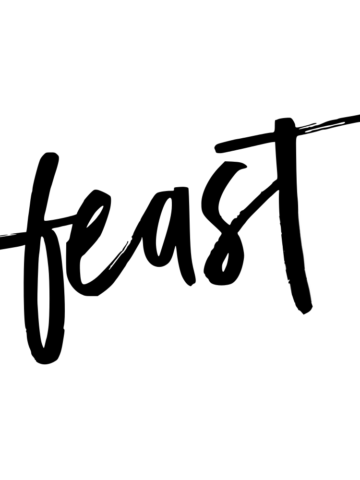This page always has the most up to date compatibility information for the Feast Plugin.
We currently support:
- WordPress 6.6.2
- Requires theme update to version 4.4.4+
- Requires Feast Plugin version 11.2.5+
- Requires libzip 1.10.1 or greater
- If you've been auto-updated to a more recent version than this, you can roll back with WP Downgrade Core
- We send notifications about this via the newsletter - please subscribe to that to be notified of all updates
- If you receive an "Incompatible Archive" error when uploading themes or plugins, contact your host to have them upgrade your version of libzip
- Genesis 3.5.0
- PHP 8.2
- We require a minimum of PHP8.1
Note the distinction compatibility - compatibility means we've tested for it and support it within our recommended setup. We do not offer support for third party plugins.
Not having tested it does not mean it doesn't work, it just means that you need to fix your own problems that arise from using an untested version.
Our testing only covers our own setup - we're unable to support third party plugins that have issues with our currently compatible versions. Please contact those plugin developers directly.
Jump to:
Why isn't the most recent version supported?
The quick answer is that releases from WordPress aren't tested to be backwards-compatible with all plugins.
That means that they break things if they want to, and wait other people to fix it for them.
Our releases are compatible with the version they're released for, not any future unknown changes.
Support and maintenance costs around $300/month from companies that specialize in this, such as NerdPress.
We do regularly update our themes and plugins for compatibility with the most recent version, but there has to be a compelling reason for it. Bug fixes, upgrades, enhancements are often useful.
Introduction of new (buggy) features that nobody asked for aren't a compelling reason for us to test compatibility for.
New versions will eventually be supported, once major issues have been identified and fixed. We send out a notification when this happens via the newsletter.
Can I update to an unsupported version?
Yes.
If you have the ability to test on a staging site, thoroughly troubleshoot issues, understand the full theme + WordPress + PHP + hosting stack, there's no problem with updating and self-servicing.
For most bloggers, this is a waste of time. You don't make money fiddling with technical garbage on your site.
There's very rarely any updates that are likely to benefit you in the short-run, except for security and bug fixes.
Versioning
Releases from WordPress and Genesis (and themes and plugins) typically run on a "semantic versioning" system.
For example, WordPress 5.9.3 would be: major version 5, minor version 9, patch version 3.
- Major releases introduce new features that aren't backwards compatible, and typically require fixes or upgrade instructions
- Minor releases often introduce new features that aren't well tested, and will require multiple iterations to refine
- Patch releases are typically fine, but we still recommend waiting a few days for a new patch to fix any issues caused by the previous patch
- except for WordPress itself, where "patch" is more of a "minor" release and should be delayed
- always be very suspicious of WordPress updates
When should I update?
These are the general guidelines we follow about 80% of the time:
- For major releases, it's often best to wait 2-4 weeks
- For minor releases, about a week usually works
- For patches, 2-3 days
- If it's a security fix, update immediately
How should I update?
All updates should always be done on a staging site and thoroughly tested before being done on a live website. You should read the entire release note to fully understand what is being changed.
Plugins should generally be updated 1 at a time, spread days apart if possible.
That's the only safe way to update. It's also wildly impractical.
Our process typically involves simply updating the plugin on the live site when it's time (see "When" above), and doing a quick double-check of the live site to make sure whatever function/plugin we've updated is working as expected.
Updates are complex and the best way to manage it is to keep plugins/complexity to a minimum and focus on content. Hire NerdPress as soon as you can afford it to manage the plugin updates for you.
Slow bugs
There's been dozens of cases over the years where something subtly breaks in the background and doesn't become apparent for days or weeks, such as:
- sitemap issues
- 404s on infrequently-visited pages
- schema lost/changed
- redirects
This can lead to misplaced blame on the wrong plugin and is why troubleshooting is so complex.
Other plugins
Maintaining compatibility information with other plugins/software is time consuming, and not something built into our pricing model. Because of this, we do not provide guidance on the most recent plugin updates for every plugin, or every update. This includes:
- Yoast
- WP Rocket
- Shortpixel
When and if we become aware of an issue, we send notifications via the newsletter.
You should always test your updates on a staging site, or have a recent (daily) backup from your hosting company ready to restore if something goes wrong.
Note that compatibility issues often don't show up for days or week after an update is performed, making troubleshooting very complex.
If you're looking for a service that actively tests and updates plugins for you, we recommend NerdPress.
PHP8.2
With PHP8.0 going "EOL" (end of life), many hosts have been sending notices to update to PHP8.2.
The Feast Plugin and our themes do not have any compatibility issues with PHP8.2.
Stay on PHP7.4 until we send an announcement via the newsletter.


Leave a Reply